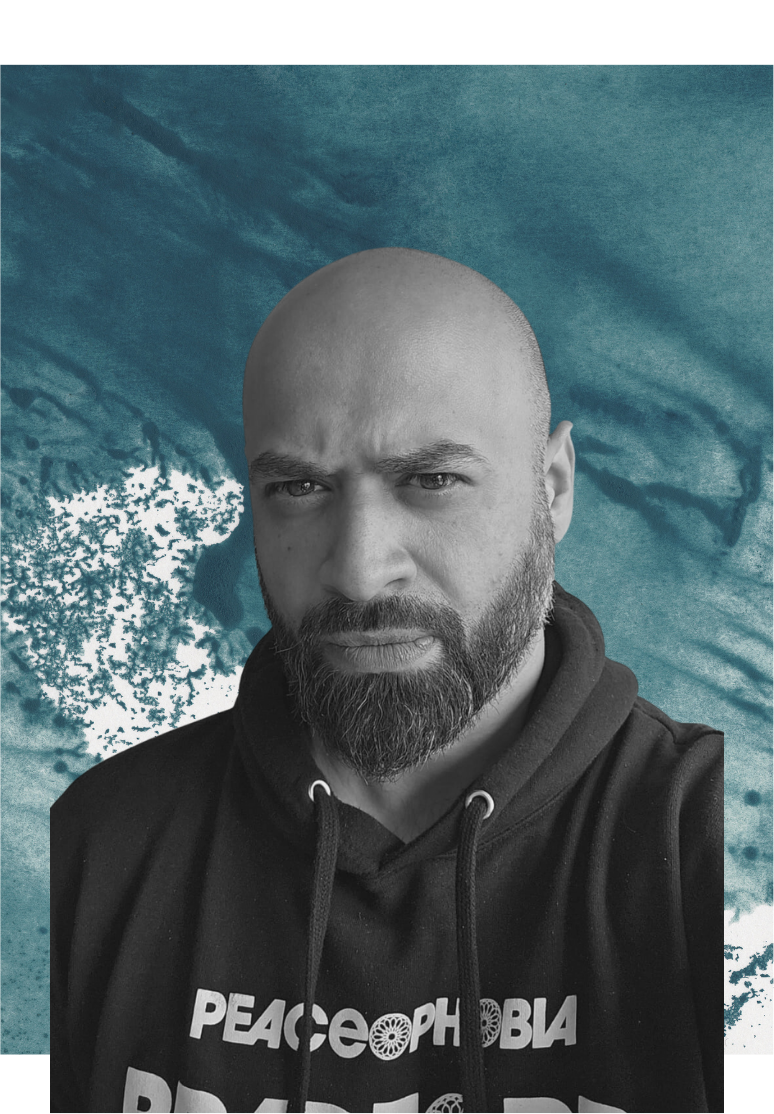
One of the most devastating experiences of Islamophobia for me was when my daughter experienced Islamophobic bullying at her school, which included two older boys shouting ‘F***ing P**i’ at her.
What was more painful was the lack of willingness to engage in restorative justice or address the attitudes that have become prevalent. This experience really showed me that almost nothing has changed since my own childhood, facing racist attacks, which morphed into Islamophobic violence.
Family members recall the horrendous racism they faced, National Front and Combat 18 marching through our neighbourhood, “P**i-bashing”, and women's hijabs and niqabs ripped off. The racist riots in the summer were based on conspiracy theories that are Islamophobic and anti-immigrant.
"This is just the tip of the iceberg"
This is just the tip of the iceberg in terms of the rampant Islamophobia that is experienced on a personal, institutional, structural and systemic level.
Islamophobia has worsened in the aftermath of conflict in the Middle East. Tell Mama has reported the highest levels of anti-Muslim hate crimes in over a decade. Despite Muslims making up just 6.5% of the UK population, 38% of all religious hate crimes are anti-Muslim. Meanwhile, seven out of 10 Muslims in the UK have faced Islamophobia in the workplace. Islamophobia is also on the rise in Europe; Half of European Muslims said they felt discriminated against in the last five years.
Defining Islamophobia:
The Runnymede Trust was the first to bring the term Islamophobia into the mainstream. They defined Islamophobia as “the shorthand way of referring to dread or hatred of Islam – and therefore, to fear or dislike all or most Muslims.” This is a good starting point for understanding the issue, but it is too broad a definition that doesn’t capture the racialised specificities of Islamophobia. This is a problem that has continued to persist despite the multiple different definitions of Islamophobia that have been put forward.
There have been similar issues with the 2010 Equality Act, which does not define Islamophobia but “protects people from discrimination because of religion or religious or philosophical belief.” This does not provide sufficient protection. Islamophobia is intersectional, which sets it apart from other forms of religious hate. One of the specificities of Islamophobia is the racialised element to it. One example of this would be when “punish a Muslim day” letters were sent to Muslim institutions in 2018.
Rooted in racism:
The issue with Islamophobia not being defined as a form of racism in law is that religious hate crime regulations are more “restrictive and difficult to convict under.” This means that cases of Islamophobic hate crime may go unpunished.
The All Party Parliamentary Group on British Muslims defines Islamophobia as “rooted in racism and is a type of racism that targets expressions of Muslimness or perceived ‘Muslimness’.” Unlike other definitions, this covers ‘both institutional and individual acts of discrimination’ as well as acknowledging the specific racialised elements of Islamophobia that set it apart. This definition provides greater protection through the existing legislation of the 2010 Equalities Act.
There are legitimate concerns about the blurring of the lines between religious hatred and valid criticisms of religion, which must be upheld in a democratic society. Muslims do not want to censor free speech, and free speech does not fundamentally go against the need to protect Muslim communities from Islamophobia.
While most major political parties – including Labour, the Liberal Democrats, and the Scottish Conservatives – supported this definition, the previous Conservative government declined to adopt it, opting instead to appoint an advisor without a mandate or sufficient resources and only on a temporary basis.
The Government-led anti-Muslim Hatred Working Group was formed in 2012, officially paused in 2020 and has not met with ministers since Theresa May was Prime Minister.
"Hope for change"
With the change of government, there is hope for change. However, this does not mean that Islamophobia, heightened by the events of October 7th, disappears. Labour needs to have a strategic plan for combating Islamophobia that raises awareness of the causes, reclaims the narrative and promotes Muslim art, culture and heritage.
The APPG definition is not perfect, but it is a working definition and a starting point. The Labour Government needs to take swift action by appointing an independent advisor, a new task force and allocating resources for each government department to have a strategic lead. A cross-sector approach is required to combat Islamophobia and promote Muslim arts, culture and heritage, focusing on a new public sector duty, CPS, workplace EDI, education, arts, culture, sport, media, staff networks and much more.
The most important thing for the new Labour government to change the status quo is to work with Muslim communities to rebuild trust. This is the best way to show society and Muslim communities that they do matter.
Ali Amla is the Youth & Partnerships Director at Solutions Not Sides and a trustee at the Faith & Belief Forum.